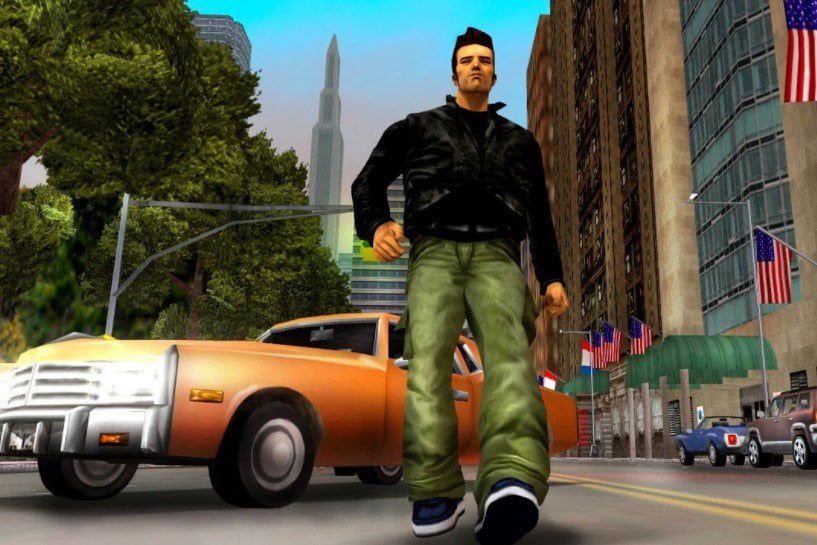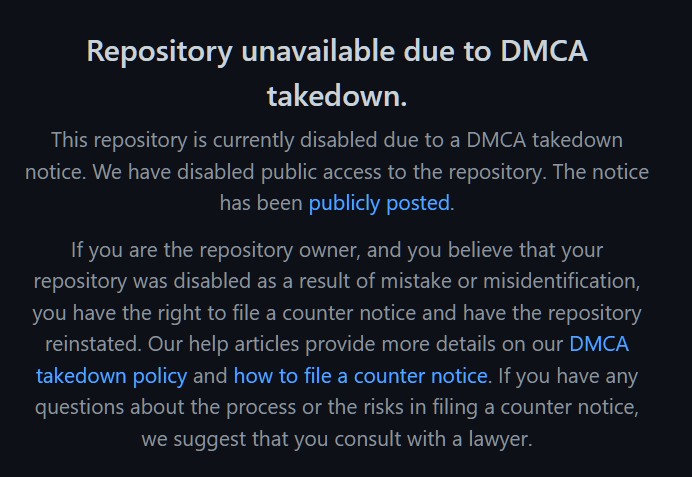Early 2021 a group of programmers and Grand Theft Auto enthusiasts released ‘re3’ and ‘reVC’, a pair of reverse engineered releases of GTA 3 and Vice City.
The releases allowed fans of these much-loved titles to enjoy them with significant enhancements but the newly polished games weren’t well-received by Take-Two and Rockstar Games. They responded by filing a DMCA takedown notice with Gihub where the code was stored, demanding the removal of the ‘re3’ and ‘reVC’ repositories.
Github fulfilled its requirements under the law by taking them both down but believing they could continue their work under the doctrine of fair use, the team behind ‘re3’ and ‘reVC’ filed a DMCA counter-notice to have them restored.
Copyright Infringment Lawsuit
Take-Two could’ve prevented this from happening by quickly filing a lawsuit. Instead, after biding its time, the company eventually responded in early September with a full-blown copyright complaint targeting Angelo Papenhoff (aap), Theo Morra, Eray Orçunus, and Adrian Graber, plus Doe 1 ‘Ash R / Ash/735’ and nine other unnamed Does.
The complaint alleges that the defendants committed willful copyright infringement by “maliciously copying, adapting and distributing its source code and other content”, making them liable for $150,000 in damages for each infringed work. Take-Two also claims that three of the defendants (Orçunus, Morra, and Graber) sent DMCA counter-notices in bad faith.
Take-Two’s Lawyers Send New DMCA Notice
Just before the weekend, a new entry in Github’s DMCA repository revealed the existence of a letter sent to Github from Take-Two’s legal team. Dated September 9, 2021 (a week after the copyright lawsuit was filed) it informs Github that legal action is underway and it has come to the company’s attention that the contentious content (and numerous ‘fork’ repositories) continue to be made available on Github’s website.
“We request that Github take expeditious action to remove or disable access to the materials [in the attached exhibit], together with any other instances of the same materials available within the same primary ‘GTAmodding/re3’ fork network (e.g. in ‘private’ or newly-created repositories),” it reads.
In common with the first DMCA notice, Github has responded by taking the project’s repositories down. Given that the defendants in the case already stand accused of previously sending “bad faith” counter-notices, it seems unlikely that they will follow up with another set of similar responses that will soon be under the scrutiny of the court.
Take-Two also follows up with a line that is becoming more and more popular in copyright infringement matters, one that references so-called ‘repeat infringers’.
“Furthermore, it is requested that Github take appropriate measures to prevent further infringement by the parties responsible, including pursuant to any ‘repeat infringer’ policies maintained by Github.”
This means that if any of the contentious content is reposted to Github, Take-Two would like the code repository to implement its own ‘repeat infringer’ process. It states that “in appropriate circumstances and in its sole discretion, [Github will] disable and terminate the accounts of users who may infringe upon the copyrights or other intellectual property rights of GitHub or others.”
The letter also provides a laundry list of repository forks that, on the basis they are also infringing, should be removed. While Github appears to have complied in many cases, there are two notable exceptions. After being targeted by earlier DMCA takedowns, Github users ‘td512‘ and ‘erorcun‘ filed DMCA counter-notices to have their repositories restored.
The former previously informed TorrentFreak that he believed Take-Two’s infringement claims to be incorrect. At the time of writing, both repos are still online.
Latest Developments in the Take-Two Lawsuit
According to court filings, Papenhoff and Graber reside in Germany, Orçunus in Turkey, and Morra in New Zealand. After Take-Two filed its lawsuit, the gaming company filed a request with the court to serve Morra, Graber and Orçunus by alternative means, specifically Orçunus by post and email, and Defendants Graber and Morra by post.
Take-Two argued that this was appropriate because in their DMCA counter-notices, all of the defendants agreed to accept service by providing their postal and email addresses where they could be served outside of the United States. Days later, Judge Thomas S. Hixson granted the motion and thus far it appears that Orçunus and Graber have been served.
TorrentFreak has requested comment from Github regarding the processes and subsequent decision to remove the repositories listed in Github’s letter.
The Take-Two legal letter to Github can be found here (pdf)








